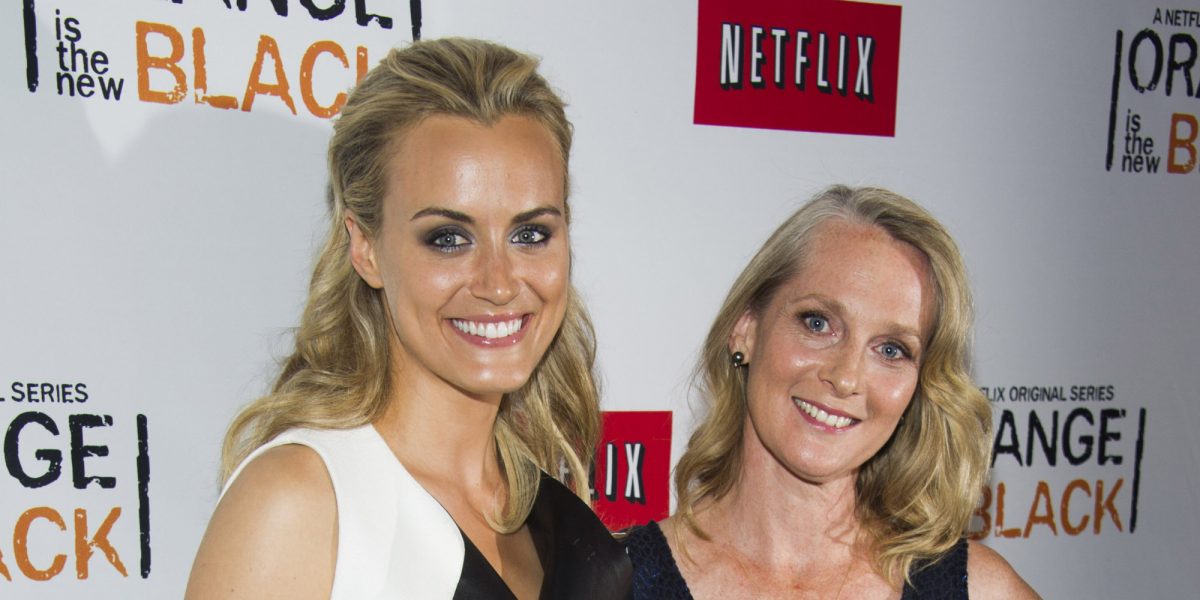News & Community
Q&A with Piper Kerman
We got a chance to talk in-depth with the Orange Is the New Black author.
Big Change Baltimore, an annual forum to discuss city issues organized by Open Society Institute, is being held next week at Center Stage. We got a chance to chat with one of its guest speakers, Piper Kerman, about criminal justice and what it’s like to have your life portrayed on a popular Netflix series.
What was your reaction when OSI asked you to be a speaker at Big Change Baltimore?
Piper Kerman: Well I am pretty familiar with their work down in Baltimore. I’ve been privileged to do work with OSI for many years. They are one of the fundamental supporters of criminal justice reform in the nation.
How much do you know about Baltimore?
PK: You know, I have only visited Baltimore a few times. It’s always been interesting. National attention turns to Baltimore frequently; it sort of has an outsized vision. I always try to get a sense of what things are like at the ground when it comes to criminal justice. Some places have acute problems like Alabama, which has a notorious women’s prison. California has host of very unique problems when it comes to reforming their prison system. It’s well worth investing time and energy finding out. Most of the innovation is coming from out in the states. As much as there are unique problems in the states, there are unique solutions.
It seems like Baltimore, like many other cities, is plagued by issues around breakdowns of other systems—like public education and public health isn’t working for everyone. The folks from our most vulnerable communities aren’t getting what they need from other systems. When kids don’t graduate from high school, too often they are doomed to go into the criminal justice system. Those problems are germane in Baltimore, including questions about how public resources are directed, particularly to the poorest communities. Having gone through the system, there is no question that these systems and places will only change when people who operate them change.
What specific issues will you address during your session of the conference?
PK: I speak very much from my own experience. I’ll talk about the incarceration of non-violent drug offenders because that’s driven our prison population to outsized numbers. I think as a person of good fortune and privilege, it’s important for me to talk about how not all Americans are policed equally, and I think that my own story puts it into stark relief.
How did your experiences inform your knowledge about the criminal justice system?
PK: When I was indicted in 1998, I knew virtually nothing about the criminal justice system. The whole personal experience of going to prison informs my perspective of how well or poorly those processes work. Since I came home in 2005, I’ve been able to work with advocates for criminal justice reform. For example, OSI is a big supporter of work on stop, question, and frisk. I am fortunate to have lived the experience.
What has it been like to have your life portrayed on Orange Is the New Black?
PK: It’s a very interesting thing. I talk to viewers of OITNB, people who love the show and watch the show. When I talk to older folks, people who are more street smart, those folks often say that the show is really real to them. The characters remind them of people they know. When I talk to younger viewers, college students for example, they ask if the characters are real. It’s really important for me to remind people that the show is grounded in reality. These characters that they’re so fascinated by are rooted in real people.
I’ll talk to prisoners and they’ll say, “We have a Pennsyltucky. We have a Crazy Eyes.” Obviously there are real women we’re talking about in the book. What makes me really happy about the show is its true to spirit of the book. The reason I wrote the book is, when we recognize that these 2.4 million incarcerated people are human beings, that’s the very first step to having really robust public debate.
